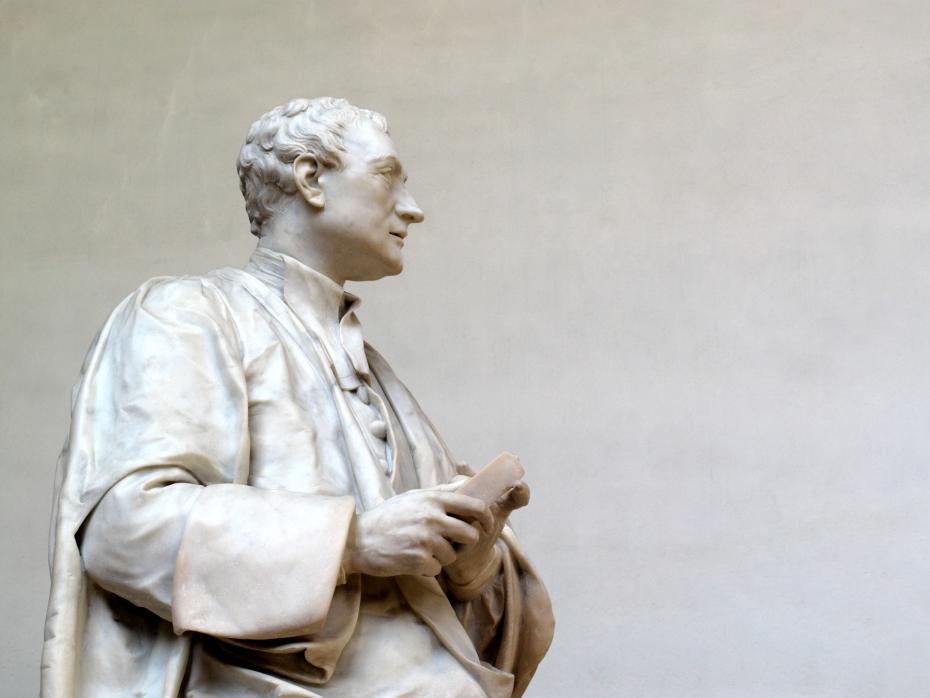
Inclusivity versus devotion to the cult of STEM
Is an underlying global STEM culture of devotion getting in the way of a more inclusive academy, asks Andrew Pye
Science is “a calling” to which we are expected to demonstrate our absolute devotion. This means worshiping at the altar of long working hours, whether we have caring responsibilities, a family or a disability. Scientists are often required to move around the globe, working for low pay on insecure contracts. If we cannot afford this, the assumption might be that we are simply not devoted enough and would be more suited to a “supporting role” in the pursuit of knowledge, with a technical, administrative or teaching focus.
Women face an immediate disadvantage because of the “spectre of motherhood”, which places motherhood in opposition to professional devotion, and affects all women, whether they have children or not.
Who are our fully devoted scientific idols? Historically they were creative geniuses, near divine in their work, capable of self-promotion and predominantly privileged, white and male. We have moved a long way from gentleman scientists, but history casts a long shadow. Affinity bias means we all tend to favour people who share similar interests and backgrounds to us. We see students who remind us of ourselves, we offer them mentorship and sponsorship, with privileged access to career-building opportunities.
- Address STEM inequality by reconceiving merit
- Resource collection: Embracing diversity in higher education
- Only a digital drive will allow us to capture the boom in STEM interest
While formal job criteria determine who has the skills for a role, it is at the interview or conferences where the gatekeepers of academia can determine a candidate’s “fit”. Then once accepted into their first permanent academic position the Matthew Effect, which states that success makes further success more likely, ensures accumulated advantage becomes entrenched privilege. This selection process continues at every promotion point until we are left with the final cut, at professor and senior management level, where the cumulative effects of subtle discrimination are most visible.
But to raise equality issues is to politicise science and science is meant to be “pure”. Science is objective and rewards excellence. We are conditioned to follow this mantra. Yet the data clearly shows a bias towards male, cis, white and non-disabled individuals. What are we to make of this? Either the data is wrong, or STEM is not objective.
The assertion that science is not entirely meritocratic, or objective, can create cognitive dissonance as it challenges one of our core beliefs. Faced with such discomfort, our instinct is to defend STEM. But perhaps we need to pause and accept some uncomfortable truths. Each barrier created by STEM working culture compounds the next and intersectionality means that some people face multiple barriers. What are your chances of becoming a professor as a disabled, working-class, female carer, from a country requiring visas for travel?
All this paints a picture as to why inequality is so entrenched. This is despite most within the scientific community nominally supporting equality. Universities are places for broadening the mind and cultural cultivation. Very few scientists are actively prejudiced against women, or racist.
There have been gradual changes in the make-up of the academy. Athena SWAN, the Race Equality Charter, the Mental Health Charter and Disability Confident have all started to make gains. Awareness of equality issues is high but tangible changes have been slow. Below I have listed, in order of increasing difficulty, policies that could make a difference to the diversity of our scientific community – which of these have your leaders implemented?
- Unconscious bias training and education;
- Part-time and flexible working;
- The ability to take career breaks without detriment to your career;
- Subsidised childcare facilities on campus;
- Mentorship programmes for under-represented groups;
- Visible diverse role models in senior management;
- Fully funded internships and scholarships at undergraduate and postgraduate level;
- Stable long-term (five- to seven-year) postdoctoral positions. This not currently the norm due to grant funding cycles, so could QR funding in the UK be used to fund more of these positions?
- Gender and race-blind application processes for funding;
- Grant funding allocated by lottery - this is already being piloted by some funders;
- Targeted recruitment of under-represented groups that complies with employment and equality laws – quotas are not currently lawful under the UK equality act 2010;
- Blind assessment of job applicants. This generally happens at the early recruitment stages, but then there are interviews where “fit” is determined;
- Faculty positions allocated by lottery – this is contentious but if there are more applicants than positions, is a transparent lottery fairer than a lottery of birth?
How far should our senior leaders go to create an inclusive culture within science? Movement in the distribution of power and privilege will be necessary for change to occur. This will be uncomfortable for some. We need to acknowledge that changing a global STEM culture will take much energy and time. The first step for all of us is to recognise the culture of devotion in which we work, and consciously question it, and the barriers it creates for many.
Andrew Pye is national teaching fellow, principal fellow of the Higher Education Academy and department co-director of inclusivity in the Centre for Ecology and Conservation at the University of Exeter.
If you would like advice and insight from academics and university staff delivered direct to your inbox each week, sign up for the Campus newsletter.




